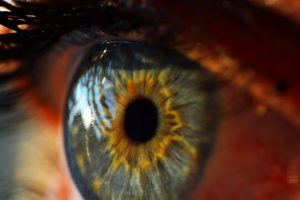Thanks to a sophisticated gene therapy experiment, published in one of the world's most prestigious scientific journals, Nature Medicine, 12 subjects suffering from choroideremia responded positively to therapy, regaining some of their impaired vision.
In general, gene therapy is a procedure by which genetic material is inserted in order to treat certain diseases. In the case of genetic diseases, in particular, this therapy restores the functionality of the 'defective' gene or completely absent, thanks to the viral vector-mediated insertion of the functioning gene.
In the field of ophthalmology, gene therapy applied to the retina as a therapeutic strategy for the treatment of diseases of the visual apparatus is showing great potential whose benefits have been confirmed by this first clinical study carried out on patients suffering from a rare genetic disease, choroideremia.
What is choroideremia?
Choroideremia, or denuded choroid, is an X-chromosome-related disease that, in the most severe cases, leads to total loss of vision. This eye disease, which occurs more frequently in males, affects the choroid and leads to a slow dystrophy of the cones and rods, the cells responsible for vision.
The onset of choroideremia is associated with a mutation in a gene that in turn results in the alteration of a protein, REP-1, which is responsible for the proper function of the retinal pigment epithelium and the choroid. The defect in this protein ultimately leads to atrophy of both tissues.
Patients suffering from this rare genetic disease, which generally occurs before the age of 40, begin to experience visual disturbances due to the formation of scotomas (areas of partial or complete blindness) that cause a limitation of the visual field. In the long term, degeneration of the pigment epithelium and the choroid results in impaired night vision and total loss of vision in the advanced stage of the disease.
The study: design, results and perspectives
The design of the clinical trial, conducted by a team of researchers at the University of Oxford on 14 subjects with choroideremia, involved a single subretinal injection containing the functional gene then able to express the REP1 protein.
The results of the study showed that, two years after surgery, the eyes of treated subjects showed an improvement in visual acuity (5.5 letters) compared to untreated subjects.
Although more clinical evidence is needed, there is no doubt that gene therapy for the treatment of genetic eye diseases could offer an excellent intervention strategy, in terms of visual recovery as well as safety.
Source
Xue k et al. Beneficial effects on vision in patients undergoing retinal gene therapy for choroideremia. Nature Medicine, 2018, (24):1507.
Dr. Carmelo Chines
Direttore responsabile
